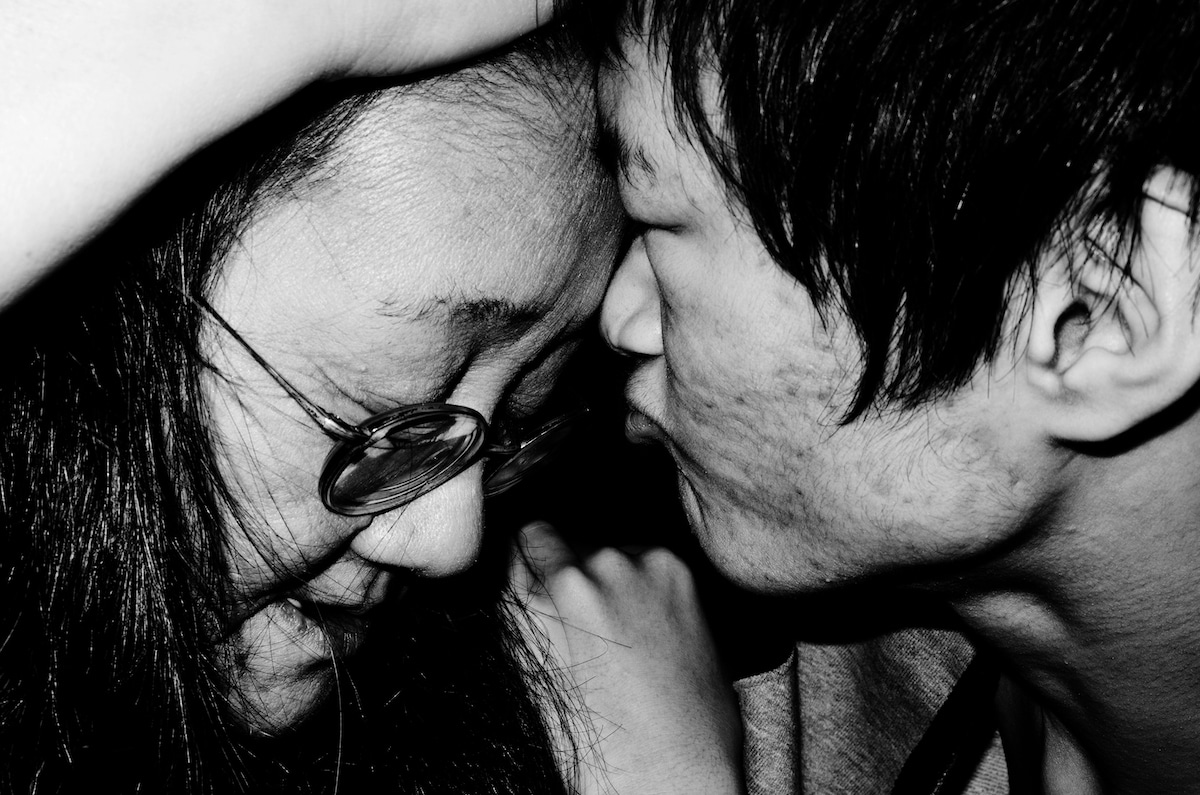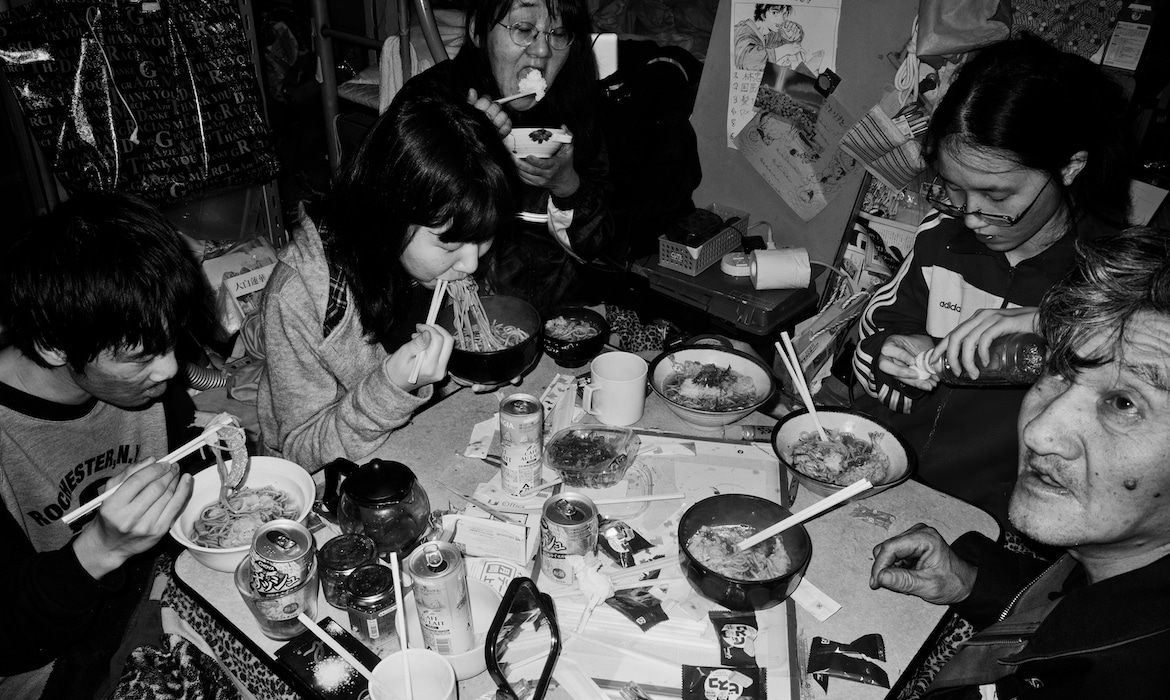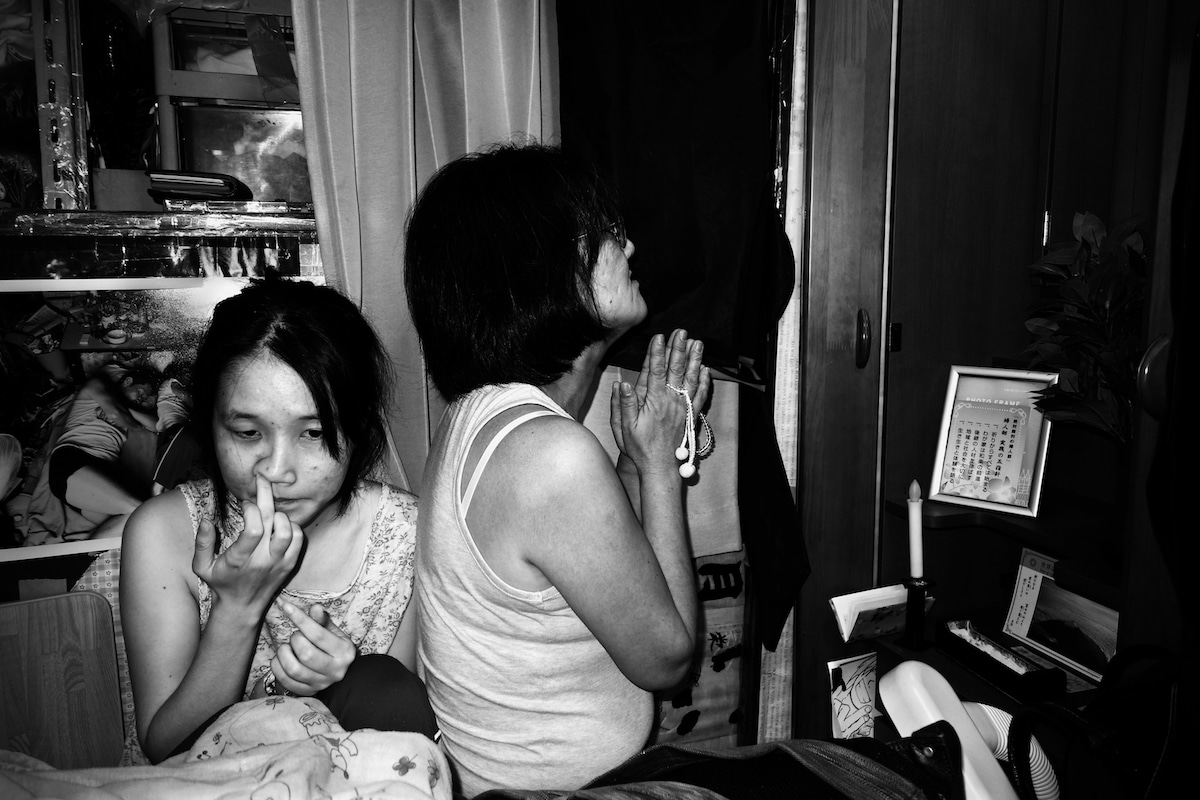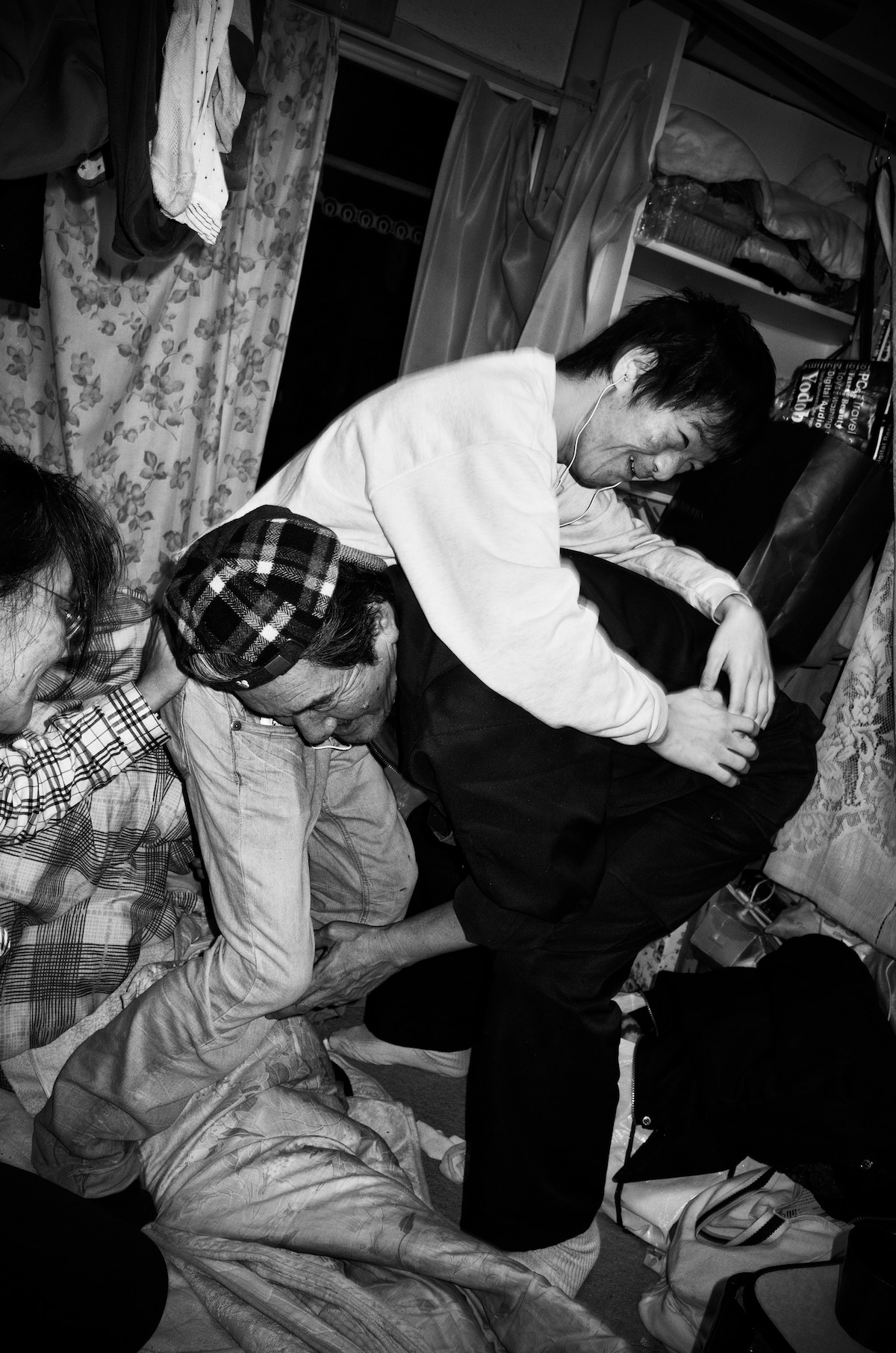
“The Yamamoto family has always slept next to each other.”
Japanese photographer Masaki Yamamoto didn’t have to go far to find inspiration for his work. Over the course of several years, the young photographer documented his family’s life as they lived in a small, one-room apartment. For 18 years, his seven-person family thrived in these cramped quarters with tobacco stained walls. His photography book Guts is a collection of photos taken in that environment, and are a testament to the bond of the Yamamoto family.
After his family was evicted from an apartment when he was just 8 years old, Yamamoto spent 2.5 years in a children’s institution—separated from his parents. They were finally able to reunite in their one-room dwelling, giving extra poignancy to the images. Amid the clutter and chaos, we see family members joking and laughing—genuinely enjoying the time spent together.
There is an intimacy and a comfort to their interactions, even when stretched out in bed, as though they are grateful for the opportunity to bond together. By breaking down walls and laying bare the truth about his own family, Yamamoto is pushing boundaries and challenging perceptions in Japanese society.
“The Yamamoto family is so human and so true-to-life that I couldn’t help but to strongly sympathize with the family’s mindset and sense of value, like what they feel attracted to and what is right and wrong to them,” he writes. “I have come to realize that this is my origin and where I will always return to.”
The family has since moved on, saving enough money to pay rent on a home. But, the legacy of the past hasn’t been forgotten. After moving in, Yamamoto’s mother pasted his photographs on the walls of their new bathroom. Two days later, they’d already fallen down. Now, they’re lost to the growing accumulation of items that are beginning to swallow up the new home, undoubtedly recreating the cozy chaos of their former dwelling.
Guts is a poignant look at the love and laughter of the Yamamoto family, who lived in the same one-room apartment for 18 years.

“My little brother trying to kiss my mother when she was trying to check his fever with her forehead.”

“Eating year-crossing noodles every year on New Year’s Eve.”

“While our mother, religious at heart for over 30 years, was praying, my younger sister was picking her nose.”

“My father checking how much our 15-year-old little brother has grown up by trying to hold him up, saying ‘you have gotten bigger!’”
